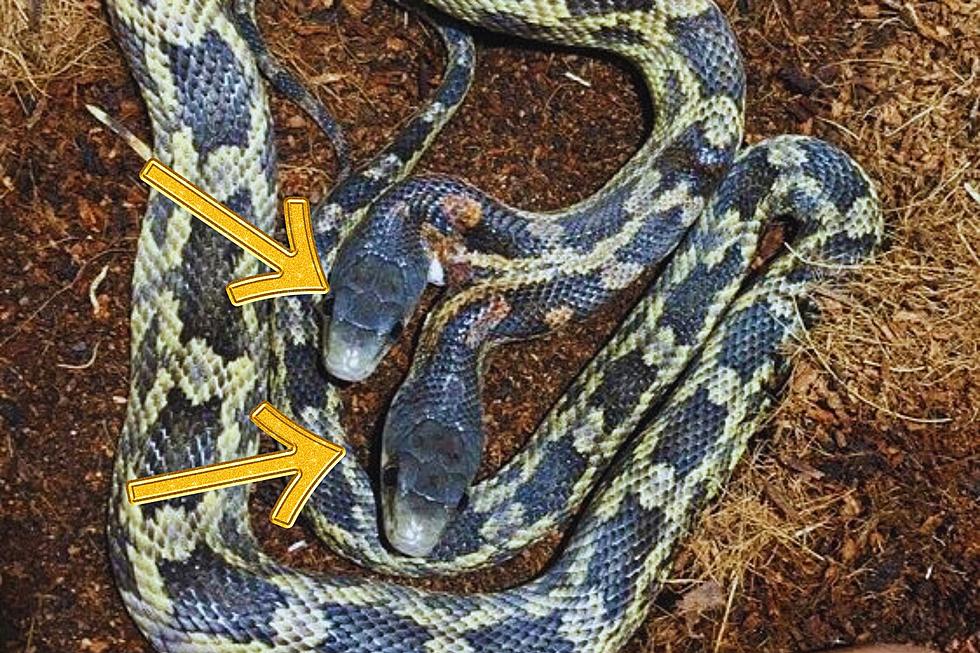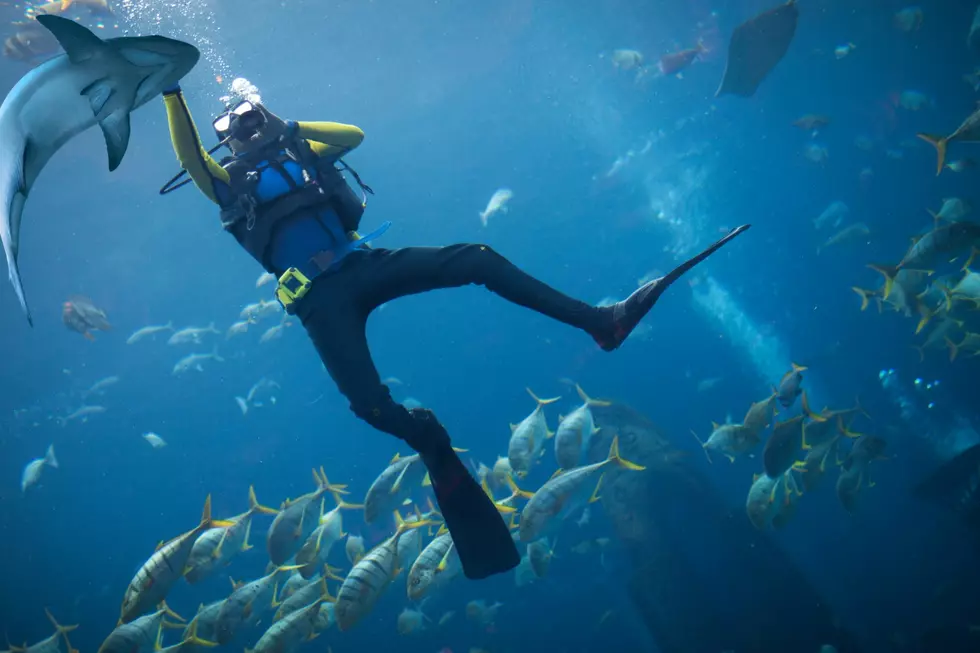
Do You Know The Top 10 Most Deadliest Critters In Texas?
Are you moving to Texas soon? Have you been thinking about it? I'll be the first to stand up and shout that I love my state! Texas is the greatest state in the Union, of that, I have no doubt. There can be challenges living here though, for instance, there are a lot of critters that will try to kill you and then consume you here.
SNAKES
Copperheads, Coral Snakes, Western Diamondback Rattlers, and Timber Rattlers are all deadly and found all over the state. One of the worst is the Timber Rattlesnake mentioned above, also known as a canebreak rattler, according to an article in Texas Monthly, it has two kinds of venom: One is a neurotoxin that paralyzes you, and the other is hemotoxic, which breaks down body tissues so you are more easily digested.
But the meanest most attitudinal snake of the bunch is the Water Moccasin or Cotton Mouth. These are the A-holes of the snake world, just mean I tell ya, when provoked they have been known to chase after folks. Bad snake.
BEARS
Texas is not well known for its bear population but they are here in several spots around the state. You'll find black bears in Northeast Texas, up in the panhandle, and even breading populations all around the Big Bend area and along the Texas/Mexico border. They're not as big or frightening as a Kodiak but they get big enough, 120 - 350 pounds, and they can completely ruin your day if you mess with them, best to just leave them alone.
REALLY BIG CATS
Mountain Lions, Jaguars, Bobcats, and Ocelots populate the Great State of Texas. These big cats are primarily night hunters so beboppin' around in the deep woods in the dark is probably not your best plan. The smaller cats like Ocelots and Bobcats range from 12 - 36 pounds, and mountain lions and jaguars can get up to over 200 pounds. Nice kitty!
ALLIGATORS
Alligators are in swamps, right? Don't think for one minute we don't have some swamps in Texas, East Texas is loaded with wetlands as is the coastal areas and therefore loaded with gators. Do not feed the gators, either WITH food or AS food.
SPIDERS
Texas has four really dangerous spiders to worry about, the Western Black Widow, Southern Black Widow, the Brown Recluse, and yes, we have our very own Texas Recluse. Spider bites are not normally fatal, but these can cause severe reactions on top of whatever venom they inject. In all cases, the Texas Department of Wildlife recommends seeking medical attention immediately.
SCORPIONS
Scorpions have four pairs of legs, two pinchers, and a tail stinger loaded with venom. Their sting is similar to a wasp sting in that it's usually not fatal however, severe allergic reactions can happen. Texas Parks and Wildlife again recommends seeking medical attention.
SHARKS
Lots of folks hit the Texas beaches every year from Brownsville up through South Padre, Corpus Christi, Galveston, and more. While you don't hear about it very often it does happen, shark bites. Baby shark do do do do do, Baby shark do do do do do do... There, now that song is firmly in your head too, let's move on. The types of sharks typically found in Texas Gulf Coast waters are Bull sharks, Great Hammerheads, Lemon sharks, Black Tip Sharks, and the occasional Tiger shark. Bull sharks are known to swim in salt and fresh water and have been found miles upstream from the coast. Watch those little piggies. Speaking of little piggies...
FERAL HOGS
Lord help us all, these things are everywhere, literally. They have been reported in every county in the state of Texas except El Paso County, and the map I saw was from 2019, whatcha wanna bet they're there now? Female swine can reproduce about twice per year with 4 to 8 piglets per litter. They're smart animals, crafty, and very destructive. They destroy everything they come in contact with and while they tend to not be normally aggressive, if cornered or if they feel threatened will defend themselves. Adult hogs can weigh anywhere from 100 to over 400 pounds. Recently a woman was killed in her own front yard by a pack of wild pigs. This is not typical behavior but it can happen. The population expansion rate is estimated at 18-21% annually, we can't hunt them fast enough to curb the population. In fact, there is no hunting season for wild pigs in Texas, if it's safe, drop 'em. TPWD says:
There are no seasons or bag limits, however a hunting license and landowner permission are required to hunt them.
Everything you have ever wanted to know about wild pigs and the damage they do to ecology and crops is right here on the Texas Parks and Wildlife website.
BRAIN-EATING AMOEBAS
It's hard to imagine anything more frightening than something you can't see with the naked eye consuming your brain. Luckily it doesn't happen very often but Texas seems to average about 1 death per year from this strange tiny creature.
The Texas Commission on Environmental Quality website states that:
On very rare occasions, a naturally occurring amoeba (Naegleria fowleri) can cause a fatal infection, primary amoebic meningoencephalitis of the brain and spinal cord.
How does infection occur? According to the TCEQ site:
...when water containing the amoeba is taken in through the nose while swimming or diving in freshwater, especially stagnant ponds, streams, or lakes in areas where the climate is warm, or in inadequately chlorinated water in swimming pools or splash pads. The amoeba may also enter the nose during nasal irrigation if the water has not been sterilized, distilled, or boiled.
KISSING BUGS
This is enough to make you shiver, this little 1-inch insect can transfer a parasite to you that if left untreated, can kill you. It's called the kissing bug, and it feeds on your blood, or your dog's blood, or any blood it can find really. They like to feed on us around our mouths or eyes which gives them the name of kissing bug. Unlike many insects that you can feel an immediate bite and react to it, this one is stealthy, taking their meal while you sleep and you can't feel a thing.
If that's not bad enough, scientists say that 50% of these bugs carry a parasite in their poo that can be transferred to humans if they poo near where they feed. That parasite causes something called Chagas disease. The early-on symptoms are fatigue, a rash, and losing your appetite. Obviously not an issue for me, but the disease is apparently hard to diagnose due to it being so similar to other diseases according to an article in Texas Monthly.
Bonus Critter: MOSQUITOS
They may look small, tiny in these pictures in fact, but I'm telling you I have seen them fly away with small children in deep East Texas. Ok, maybe that's a stretch, but tiny or not, these irritating menaces to society can put a hurt on you if you contract the West Nile Virus from them. According to the CDC:
About 1 in 5 people who are infected develop a fever and other symptoms. About 1 out of 150 infected people develop a serious, sometimes fatal, illness. You can reduce your risk of WNV by using insect repellent and wearing long-sleeved shirts and long pants to prevent mosquito bites.
There are no medicines to counteract WNV, your best defense is to wear long sleeves and long pants, and use plenty of repellant with Deet during mosquito season... which is almost year-round in Texas.
Granted, most of these critters aren't necessarily trying to kill you, but that can very well be the end result.
God Bless Texas.
10 Things You Didn't Know Come From Texas
What Makes This House in Texas Unique? It's Totally Underground!

More From Good Time Oldies 107.5









